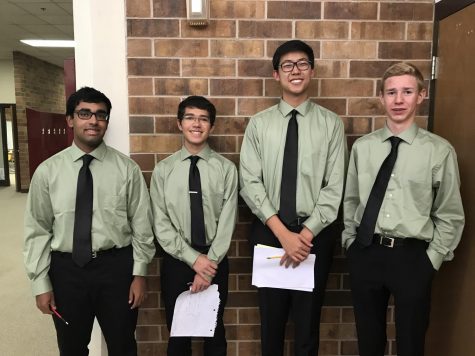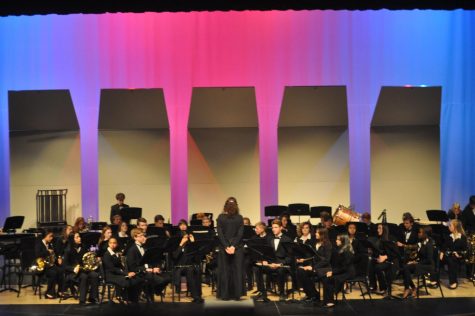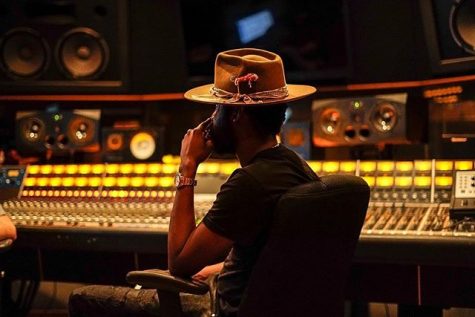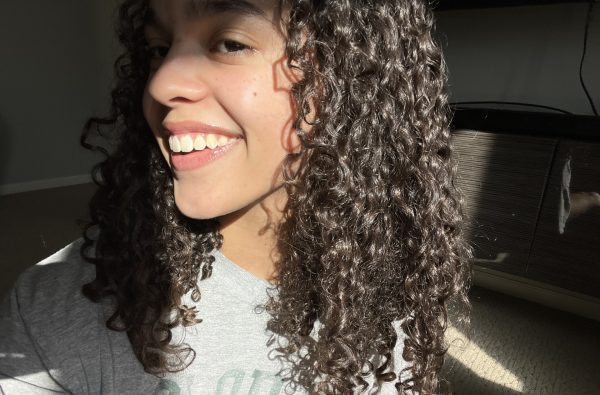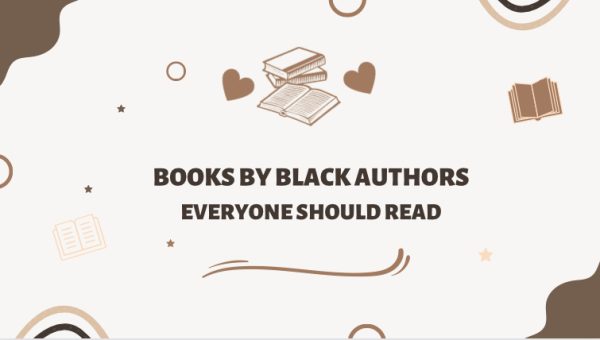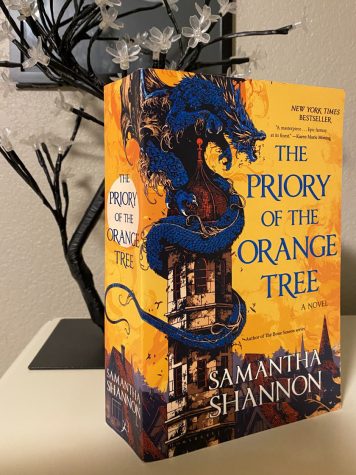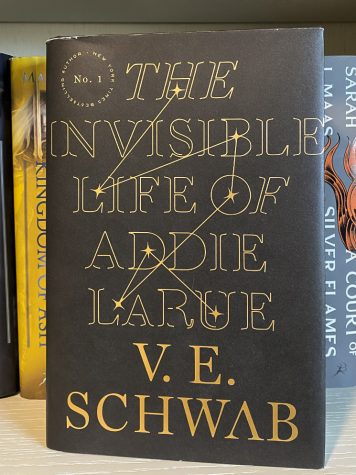“It’s hard to get me down to 800 words.”
Photo Credit: Science Magazine
November is National Novel Writing Month (NaNoWriMo), an annual writing event that takes place across the world. Writers of all ages, races, and backgrounds attempt to write 50,000 words in thirty days. Over the course of the month, there are “write ins” held in hundreds of locations for those who write better when surrounded by people. Winners are picked at the end of the month who have completed a manuscript and can win prizes like critiques and agent reads. Although, for most, the best prize is having completed a novel, some for the very first time, others adding to long and accomplished lists. In honor of a month dedicated to writing, it only felt right to feature two Fossil Ridge High School students who have written their own books, and explore their ideas, processes, and inspirations.
Ari Banta
Ari Banta is a junior, and at first thought, she says that she fell in love with writing in seventh grade in her honors English class. However, after just a moment, she realizes that it really started earlier than that. “I was in fifth grade,” she explains, “and we had to write this short story in the historical era. And I wrote this story – I’m still salty about it, I got a ‘B’ on it, I used the word surmised – about this girl, who in the Revolutionary-Era was protecting her parents and got shot in the leg. It was very violent, I was only in fifth grade at the time, but she was fine. And I got a B on it.”
In sixth grade, she wrote a story about how the lion got its roar when asked to write a myth. In seventh grade, students were asked to answer daily writing prompts. After writing one one day, Banta realized that it could make a really good full story. Her eighth grade teacher was extremely instrumental in Banta’s own writing process, as the teacher was writing a novel herself. Banta took a creative writing class with her, and loved it. And, as she puts it, “I just kinda kept going from there.”
Banta finds that she doesn’t have as much homework as her friends do, and that’s a large part of why it’s possible for her to find time to write. She admits to falling into the same trap many other students do, when she’d rather relax by watching tv than working towards something that’s ultimately more satisfying. She does say, though, that “sometimes I’ll open my stuff and read it, and I’ll be like, oh, I can add this. I’m bored. I can just write.”
Personally, she prefers to keep what she writes secret, at least for a while. She has some published works on Wattpad, which is an application that allows anyone to post stories and anyone to read them. Authors can get feedback on their writing, and put it in front of people from all over the world. One of her stories has about 15,000 reads, the kind of number that is extremely hard to obtain without the technology available to young writers today. On Wattpad, authors publish in parts, which are about 2,000 words on average. Banta’s longest story on the app is completed at 91 parts.
There are times when Banta prefers typing her work, because she loves, “feeling how fast my fingers move on the keys.” She explains, though, that there’s this “immense joy that I get from writing and having my hand cramp. The only annoying thing is that I have to transfer into my documents later. But I always have a journal, I always have two journals with me right now.”
The book that Banta feels most deserving of publishing is one she wrote with her best friend, of which only part one of two is completed. She knows that, “we have to edit it, a lot… but if we could publish it, that would be really cool. It’s not that I don’t know that it’s possible. It’s just a lot of work. And I don’t know if the two of us have the time to do that.”
Banta is “bouncing between projects” rather than working on any sort of main piece. That allows her to add good ideas to certain things when they come to her, and she never has to force herself to sit down and write. Though she doesn’t think she’ll pursue writing as a career, it will continue to be a part of her life for a long time.
Garrick Bateman
Junior Garrick Bateman can’t remember a time that he didn’t write. He says that, “it’s always something I’ve inherently done… when I was really little, four and five, I really liked Captain Underpants. I would get printer paper, and just draw the comics. Then I started writing on the computer, and then I was always writing something.”
Film Studies really helped him develop his skills as a writer. There, he did a lot of essay writing that focused on critical analysis of stories, rather than the style-based analysis that most other core Language Arts courses teaches. It’s harder to transfer those skills to his own writing; he explains that, while “that’s great for learning about analysis, you don’t borrow someone else’s style. You have to have your own voice.”
Bateman is as busy as any other high schooler, but he finds that, when he doesn’t write, he gets really “bummed out.” Explaining that, “the times that I don’t write are the times when I’m the most stressed, and the most anxious”, Bateman finds that two weeks are enough to count as a long break. As a TV student, he writes about one script per week, which cuts back on his time for personal writing. When he does find the time, it’s meditative.
Bateman has been working on his novel since freshman year. Currently on his fourth draft, “it’s changed a lot since then, and that’s my big project.” Entitled Crow House, the inspiration for the novel was complicated. Bateman knows that some writers come to their stories by way of epiphany: moments when they know “I have to write this story!” However, he says that he’s never had that.
When he started to write, he knew wanted to craft something along the lines of an “Agatha Christie-murder mystery.” He didn’t know what it would look like, but he just started writing something that eventually became “this amalgamation of several different ideas and several different influences. It actually became its own kind of entity.”
Mr. Gallagher, Fossil’s TV teacher, is a big mentor to Bateman. Bateman says that, “he’s read every single script I’ve ever written. That’s really helpful, because I’ll ask him if he wants to read it, and then we’ll sit down and talk about it. I learn a lot from those short little scripts about story elements and how to write characters and how to write dialogue. Then I take that and I apply it; a lot of my script writing is just me figuring things out.”
When Bateman handwrites his work, he’s noticed that he usually doesn’t write enough. It’s mostly a spacial thing – he can tell what something will look like printed when it’s typed, and from that he can tell where to cut to dialogue or insert more plot. Handwritten, his prose is shortened and it reads more like a manuscript.
Bateman really wants people to read his novel, but he understands it’s difficult to ask people to put aside that much time. For him, “this is a project I’m really passionate about. It’s something that’s representative of my writing style, more than anything else I’ve done. And it’s something I want to pursue.” He explains that he wants to find an editor, put in the work to change draft after draft, and eventually send it to a publisher. Truly, “it’s the real thing.”
Your donation will support the student journalists of Fossil Ridge High School. Your contribution will allow us to purchase equipment and cover our annual website hosting costs.
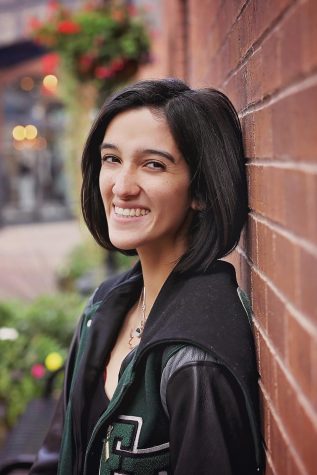
Despite all the warnings given to her, senior Isabella Mahal filled her schedule with AP classes and a single TA period. Many of these classes were only open to seniors and fascinate her, such as AP Literature and AP World History, so not having an off period doesn’t bother her. It isn’t just her...




